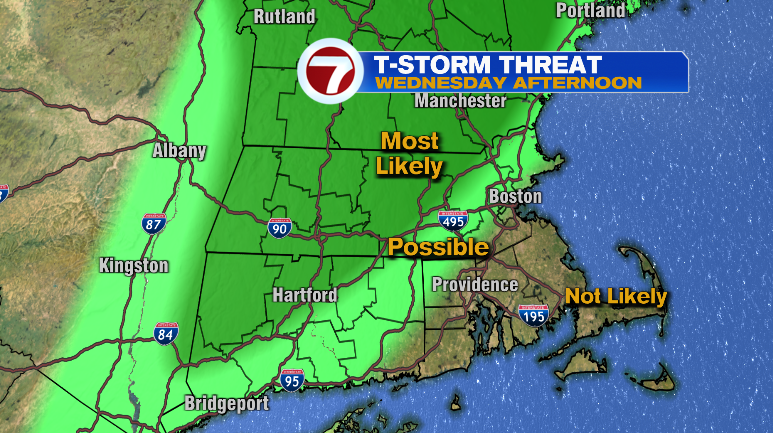Drier Weather Ahead: Tips For Water Conservation

Table of Contents
Saving Water Indoors
Reducing water usage inside your home is a crucial step in overall water conservation. Even small changes can significantly impact your water bill and contribute to water efficiency.
Shower Smarter
Showers are often a major source of water consumption. Simple adjustments can lead to considerable savings.
- Reduce Shower Time: Aim for shorter showers. Even shaving just a couple of minutes off your daily shower can save gallons of water over time.
- Install a Low-Flow Showerhead: Low-flow showerheads are readily available and dramatically reduce water usage without compromising water pressure. The initial investment pays for itself in reduced water bills.
- Consider a Water-Efficient Shower Timer: A shower timer can help you stay mindful of your shower duration and prevent unintentionally long showers.
- Repair Leaky Faucets Promptly: A constantly dripping faucet wastes a surprising amount of water daily. Fixing leaks immediately is essential for water saving and prevents larger, more costly problems down the line.
Kitchen Conservation
The kitchen is another area where significant water savings are possible.
- Run Your Dishwasher Only When Full: Avoid running your dishwasher with only a few dishes. Wait until it's completely full to maximize efficiency and conserve water.
- Use the Most Efficient Dishwasher Setting: Modern dishwashers offer various settings. Opt for the most water-efficient setting to minimize water consumption.
- Repair Leaky Pipes and Faucets Immediately: Leaky pipes and faucets in the kitchen contribute to significant water waste. Addressing leaks quickly is crucial for both water conservation and preventing potential water damage.
- Don't Let the Tap Run: Avoid letting the tap run continuously while brushing your teeth or washing dishes. Turn the water off between rinsing steps.
- Consider Installing a Low-Flow Faucet: Low-flow faucets reduce water usage while maintaining sufficient water pressure for your kitchen tasks. They're an easy upgrade for significant water saving.
Toilet Techniques
Toilets account for a substantial portion of household water use.
- Check for Toilet Leaks: Add a few drops of food coloring to your toilet tank. If the color appears in the bowl without flushing, you have a leak that needs immediate attention.
- Consider Installing a Dual-Flush or Low-Flow Toilet: These toilets use significantly less water per flush compared to older models. Replacing older toilets is a worthwhile investment for long-term water saving.
- Fix Any Running Toilets Immediately: A constantly running toilet wastes a considerable amount of water. Address this issue promptly to prevent unnecessary water loss.
- Avoid Flushing Unnecessary Items: Only flush toilet paper and human waste. Avoid flushing other items, which can clog pipes and lead to unnecessary water usage during repairs.
Outdoor Water Conservation Strategies
Outdoor water use often surpasses indoor consumption, particularly during drier weather. Implementing smart strategies here is essential.
Landscaping for Efficiency
Your landscaping choices significantly impact your water usage.
- Choose Drought-Resistant Plants: Opt for plants native to your region that require less watering. They're naturally adapted to local conditions and minimize the need for frequent irrigation.
- Water Deeply but Less Frequently: Deep watering encourages deep root growth, making plants more drought-tolerant. Less frequent watering reduces water waste from surface evaporation.
- Water Early or Late: Water your lawn early in the morning or late in the evening to minimize evaporation loss due to the sun's heat.
- Use Soaker Hoses or Drip Irrigation: These methods deliver water directly to plant roots, reducing water waste from runoff and evaporation compared to sprinklers.
- Mulch Around Plants: Mulch helps retain soil moisture and reduces evaporation, requiring less frequent watering.
Smart Sprinkler Use
Sprinklers, if not used efficiently, can lead to significant water waste.
- Check Your Sprinkler System: Regularly inspect your sprinkler system for leaks and broken sprinkler heads. Repair or replace damaged components promptly.
- Adjust Sprinkler Heads: Ensure your sprinkler heads are correctly adjusted to avoid overwatering and prevent water runoff onto sidewalks or driveways.
- Consider a Smart Irrigation System: Smart irrigation systems monitor soil moisture levels and adjust watering schedules based on actual needs, minimizing water waste.
- Avoid Watering on Windy Days: Wind significantly increases evaporation, leading to water loss. Avoid watering on windy days to maximize efficiency.
Collecting and Reusing Water
Collecting and reusing water offers effective ways to reduce your overall water consumption.
Rainwater Harvesting
Rainwater is a valuable resource that can be easily harvested.
- Install Rain Barrels: Rain barrels collect rainwater from your roof gutters, providing free water for watering plants.
- Use Greywater (Check Local Regulations): Greywater (from showers and sinks) can be used for irrigation, but check your local regulations before implementing this method.
Repurposing Water
Don't let usable water go to waste.
- Use Vegetable Water: Water from boiling vegetables is rich in nutrients and can be used to water plants.
- Collect Rinse Water: Collect water used for rinsing fruits and vegetables to water your plants.
Conclusion
Conserving water isn't just about saving money; it's about protecting our environment and ensuring a sustainable future. By implementing even a few of these water conservation strategies, you can make a significant difference in reducing your water usage and contributing to responsible water management, especially during periods of drier weather. Start saving water today and make a positive impact! Learn more about effective water conservation techniques by searching online for "water conservation tips" or "reduce water usage."

Featured Posts
-
 Love Monster A Comprehensive Guide
May 21, 2025
Love Monster A Comprehensive Guide
May 21, 2025 -
 Naybilshi Finansovi Kompaniyi Ukrayini Za Dokhodami U 2024 Rotsi Oglyad
May 21, 2025
Naybilshi Finansovi Kompaniyi Ukrayini Za Dokhodami U 2024 Rotsi Oglyad
May 21, 2025 -
 Collins Aerospace Cedar Rapids Layoffs Confirmed
May 21, 2025
Collins Aerospace Cedar Rapids Layoffs Confirmed
May 21, 2025 -
 The Goldbergs The Shows Impact On Pop Culture
May 21, 2025
The Goldbergs The Shows Impact On Pop Culture
May 21, 2025 -
 Fa Cup Rashfords Two Goals Power Aston Villa Win Against Preston
May 21, 2025
Fa Cup Rashfords Two Goals Power Aston Villa Win Against Preston
May 21, 2025
